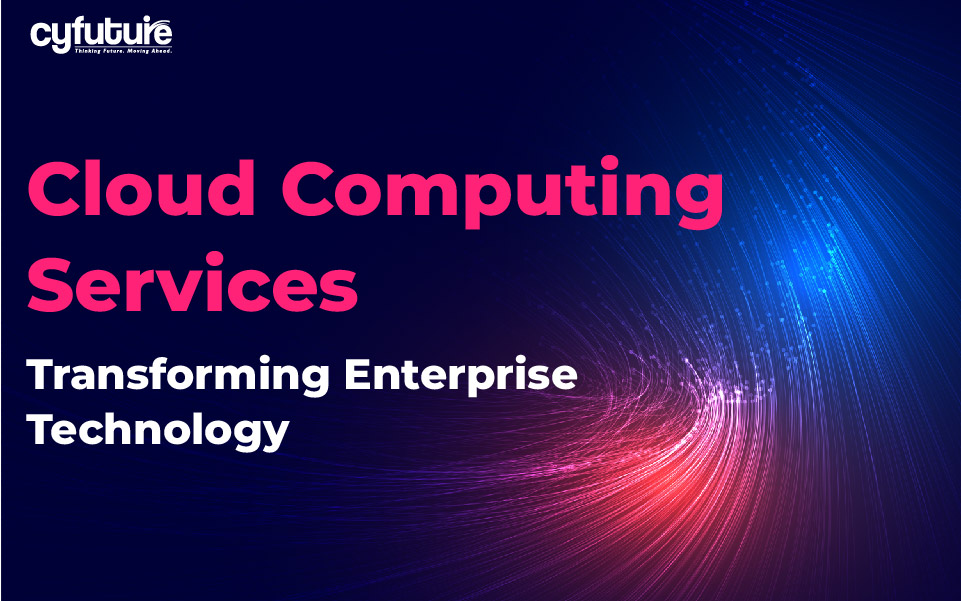 542 Views
542 Views
Were you searching for comprehensive insights on cloud computing services and their transformative potential?
Cloud computing services refer to the delivery of on-demand computing resources such as infrastructure, platforms, and software over the internet, enabling businesses to achieve scalability, cost efficiency, and enhanced collaboration without investing in physical hardware. This blog delivers a deep dive into cloud computing services, supported by the latest authoritative data and real-world industry impacts, tailored for tech leaders, enterprises, developers, and students aiming to master the cloud landscape.

What are Cloud Computing Services?
Cloud computing services encompass Infrastructure as a Service (IaaS), Platform as a Service (PaaS), Software as a Service (SaaS), and emerging cloud models that provide flexible, scalable, and pay-as-you-go cloud resources. These services eliminate capital expenditures and accelerate innovation by enabling instant access to compute power, storage, development tools, and applications remotely.
Market Overview and Growth Statistics
The global cloud computing market is surging with a projected revenue of $723.4 billion in 2025, up from $595.7 billion in 2024 (Gartner). This growth is fueled by AI integration, hybrid cloud strategies, and accelerating digital transformation initiatives. Small and medium-sized businesses (SMBs) have shifted more than 50% of their tech budgets toward cloud services, highlighting widespread adoption beyond enterprises.
By 2030, the cloud market is forecasted to surpass $2.39 trillion, showcasing the enormous scale and opportunity (Grandview Research). Public cloud alone is expected to exceed $1 trillion by 2026, with North America leading the expenditure at $248 billion in 2024 and rapid growth evident in the Asia-Pacific, especially China.
Leading Cloud Service Models and Trends
- SaaS remains the largest cloud segment with expected revenues around $390.5 billion in 2025.
- IaaS is the fastest-growing segment, with a compound annual growth rate (CAGR) of 26.2%, driven by AI workloads, big data, and remote infrastructure demands.
- PaaS follows with robust growth, supporting scalable software development and deployment.
- Serverless computing adoption has crossed 75%, with AWS Lambda, Google Cloud Run, and Azure Functions enabling developers to focus purely on code execution without managing servers.
Why Choose Cyfuture for Cloud Computing Services?
Cyfuture stands out as a resilient and innovative cloud service provider with:
- Proven expertise in deploying customized cloud solutions across industries with a strong track record.
- Cutting-edge technology investments ensuring customers leverage the latest advancements including AI-optimized infrastructure.
- Robust security measures that protect data and applications aligned with global compliance standards.
- Scalable and flexible cloud offerings ranging from public, private, hybrid clouds to managed cloud hosting.
- 24/7 expert support to ensure seamless cloud operations and prompt problem resolution.
- Global reach, facilitating enterprises in multiple regions to harness cloud advantages locally and internationally.
Use Cases Empowered by Cloud Services
- Enterprises leverage cloud to accelerate digital transformation, enabling rapid app deployments, real-time analytics, and collaborative workflows.
- Developers use scalable environments and DevOps pipelines powered by PaaS and serverless for faster innovation cycles.
- Students and tech leaders access powerful cloud-based learning and experimental resources without large infrastructure investments.
Positive Industry Quotes on Cloud Computing
- “Cloud computing is the backbone for innovation, enabling companies to pivot and scale in real time.” – Tech Thought Leader on Quora
- “The cloud democratizes access to powerful computing resources, leveling the playing field for startups and giants alike.” – Cloud CTO on Twitter
- “Migrating to cloud computing has dramatically reduced our capital expenditure and improved uptime.” – Enterprise CIO on Reddit

FAQs on Cloud Computing Services
-
What differentiates IaaS, PaaS, and SaaS?
IaaS provides hardware resources, PaaS offers development frameworks, SaaS delivers ready-to-use applications.
-
How does cloud computing reduce costs for businesses?
By eliminating upfront hardware investments and providing scalable pay-as-you-go pricing models.
-
Is cloud computing secure for sensitive data?
Leading providers implement encryption, multi-factor authentication, and compliance certifications to ensure high security.
-
What industries benefit most from cloud adoption?
Healthcare, finance, retail, manufacturing, and IT sectors heavily use cloud for agility and data analytics.
-
Can small businesses afford enterprise-level cloud services?
Yes, SMBs increasingly allocate over 50% of their tech budgets to cloud due to flexible pricing and scalability.
-
What role does cloud play in AI and machine learning?
Cloud platforms offer scalable GPU compute for training and deploying sophisticated AI models.
-
How does a hybrid cloud differ from public or private cloud?
Hybrid cloud blends on-premises and cloud infrastructure to balance control with scalability.
-
What is serverless computing?
It’s a cloud execution model where developers run code without managing servers, billed only for actual usage.
-
How should organizations optimize cloud costs?
Through cloud cost management tools, workload right-sizing, and automated scaling.
Related Posts in This Category
